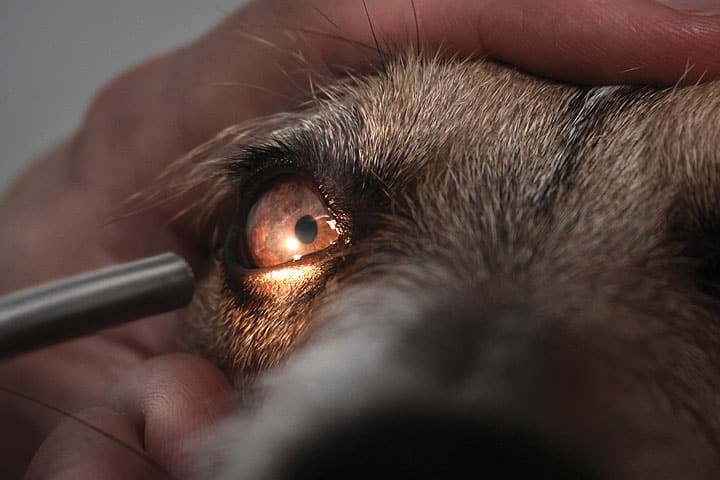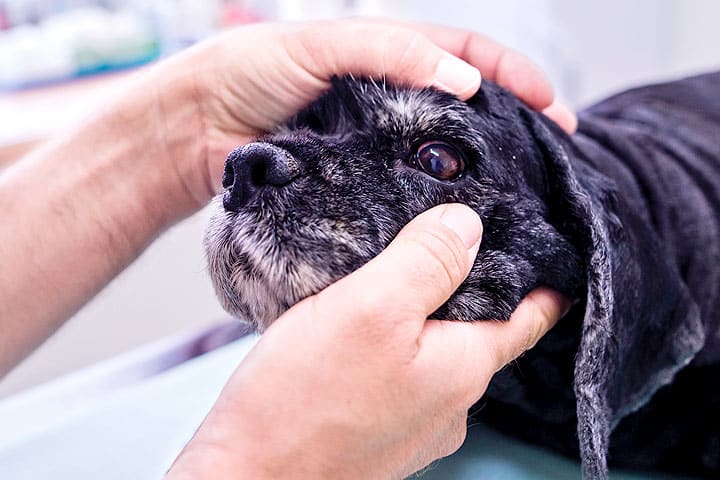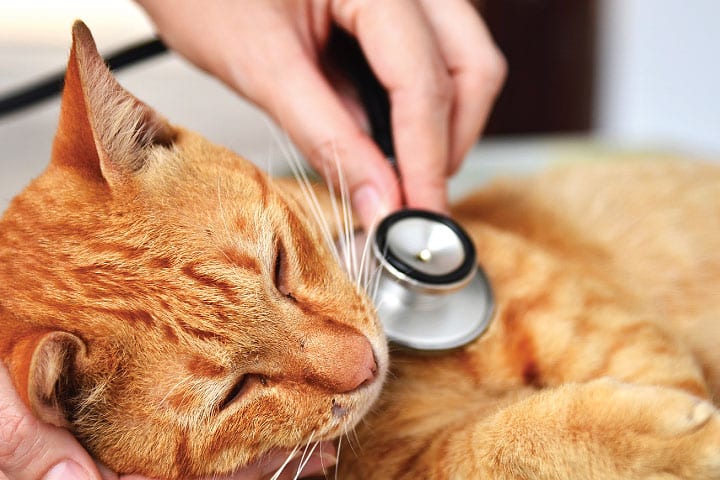Traumatic Brain Injury
Blunt head trauma is common in small animals with up to 50% of the cases due to road traffic accidents. Patients presenting with head trauma usually will have concomitant injuries, therefore it is very important to perform survey X-rays of the chest abdomen and spine to check for life-threatening conditions such as pneumothorax or haemo/uroabdomen.…
Read MoreIdiopathic Epilepsy
Epilepsy is a complex brain disease where sudden and abnormal excessive neuronal activity causes the characteristic transient clinical signs of a seizure. Recently the International Epilepsy Task Force made a consensus statement on epilepsy and the recommendations are summarised in this article. How do I know this dog is having seizures? Always try and get…
Read MoreDealing with Cranial Nerve Examinations and Intracranial Diseases
Facial nerve paralysis, head tilt, drop jaw? Cranial nerve abnormalities are relatively common presentations in dogs and cats. In this webinar we will discuss the examination of the cranial nerves with tips and tricks to localise peripheral versus central nervous system problems. Finally, we will discuss common differential diagnoses, how best to investigate and manage…
Read MoreThe Uncontrolled Epileptic Dog
Idiopathic Epilepsy is a condition that affects more than 0.6% of dogs in the UK1 and it can have a significant detrimental effect on the quality of life of the dog and the family. Many owners suffer feelings of fear, stress and uncertainty, resulting in lifestyle changes far greater than previously estimated2. Here we will address…
Read MoreCanine Vestibular Disease – Central versus Peripheral
Not just head tilt! In this presentation Bethan will guide you in this seemingly simple but neurologically complicated system, its clinical signs and aetiology. Is the neurological examination still the gold standard for the localisation, i.e. peripheral, central, paradoxical? Or has advanced imaging drastically improved the diagnosis, added a large amount of information and shifted…
Read MoreFeline Epilepsy
Both cats and dogs suffer from seizures, however the diagnostic and treatment approach for cats differ greatly from their canine companions, and, at times, it can seem frustrating and challenging. We can find many causes for Feline Epilepsy, from metabolic problems, toxins, or genetics. Therefore, a complete diagnostic approach is necessary to determine a diagnosis.…
Read MoreCobalamin Supplementation
Hypocobalaminemia is regularly seen in canine and feline small intestinal disease and exocrine pancreatic insufficiency (EPI). Despite other therapy, gastrointestinal symptoms may fail to resolve if low cobalamin levels are not corrected. Historically supplementation has been recommended by SC injections, as oral supplementation was suspected to be ineffective. However, oral supplementation has recently been shown to…
Read MoreProteinuria
How do we measure proteinuria, and what are the pros and cons of the options? Proteinuria is most commonly assessed using dipsticks, or submitting the sample for a urine protein: creatinine ratio (UPCR). Dipstick tests are cheap, and easy, but unfortunately are prone to inaccuracies. False negative results can occur in Bence-Jones proteinuria, or with…
Read MoreTreatment of Ionised Hypercalcaemia in Cats
When to measure blood calcium in cats and why do we worry? Clinical signs of hypercalcaemia include PUPD, weakness, depression, anorexia, vomiting, constipation, muscle twitching and cardiac arrhythmias. Often hypercalcaemia is detected on routine bloods as an incidental finding. The detection of ionised hypercalcaemia should always be investigated further and appropriate management instigated. Chronic, untreated…
Read MoreDiagnosing Hyperadrenocorticism with Confidence
Canine hyperadrenocorticism: How to not stress about the diagnosis Identify other diseases before endocrine testing ACTH (Synacthen®) is not necessary to diagnose the condition in many dogs UCCR is rarely used to confirm the disease Beware the ‘unwell’ dogs with hyperadrenocorticism Getting started Making a confident diagnosis of canine hyperadrenocorticism (HAC) can be a challenge.…
Read More








